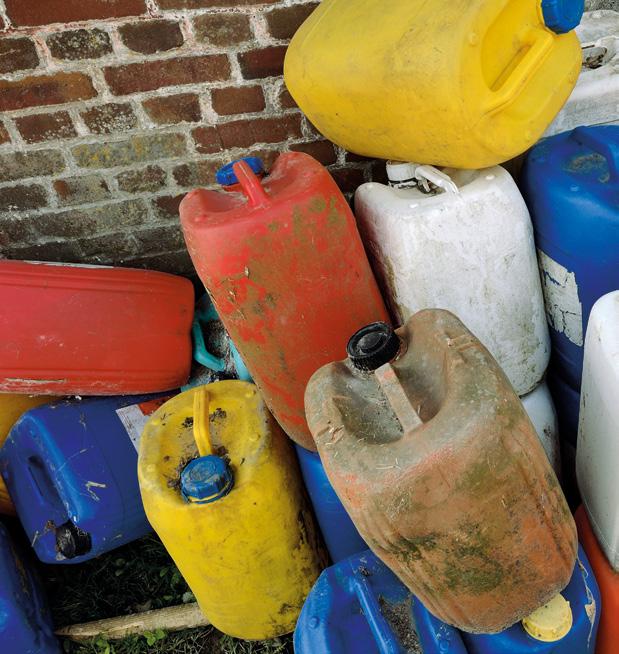
1 minute read
DANGEROUS CHEMICALS IN RECYCLED PLASTIC: THE THREE POISONOUS PATHWAYS
from Forever Toxic
Dangerous chemicals make their way into recycled plastic materials from a variety of sources. Since nearly all plastics are made from a combination of carbon (mainly oil/gas) and toxic chemicals, the most obvious pathway is direct contamination, as chemicals from the original plastic products simply transfer into recycled plastic. But chemicals can also enter recycled plastics in other ways, due to contamination in the plastic waste stream and the recycling process itself.
The three uncontrollable poisonous pathways of plastic recycling are:
Advertisement
1. Toxic chemicals in new virgin plastic materials: When plastics are made with toxic chemicals and then recycled, the toxic chemicals can transfer into the recycled plastics.
2. Leaching of toxic substances into plastic waste: Numerous studies show that plastics can absorb contaminants via direct contact and through the absorption of volatile compounds.3 When plastics are tainted by toxins in the waste stream and the environment and are then recycled, they produce recycled plastics that contain a stew of toxic chemicals. For example, plastic containers for pesticides, cleaning solvents, and other toxic chemicals that enter the recycling chain can result in contamination of recycled plastic.
3. New toxic chemicals created by the recycling process: When plastics are heated in the recycling process, this can generate new toxic chemicals that make their way into the recycled plastics. For example, brominated dioxins are created when plastics containing brominated flame retardants are recycled,4 and a stabilizer used in plastic recycling can degrade to a highly toxic substance found in recycled plastics.5 Sorting challenges and the presence of certain packaging components in sorted materials can also lead to toxicity in recycled plastic. Studies have shown that benzene (a carcinogen) can be created by mechanical recycling of PET#1 plastic, even with very low rates of contamination by PVC#3 plastic, resulting in the cancer-causing chemical being found in recycled plastics.6
PLASTIC RECYCLING'S UNCONTROLABLE POISONOUS PATHWAY 1 2 3
NEW TOXIC CHEMICALS CREATED BY THE RECYCLING PROCESS

TOXIC CHEMICALS IN NEW VIRGIN PLASTIC MATERIALS
LEACHING OF TOXIC SUBSTANCES INTO PLASTIC WASTE










